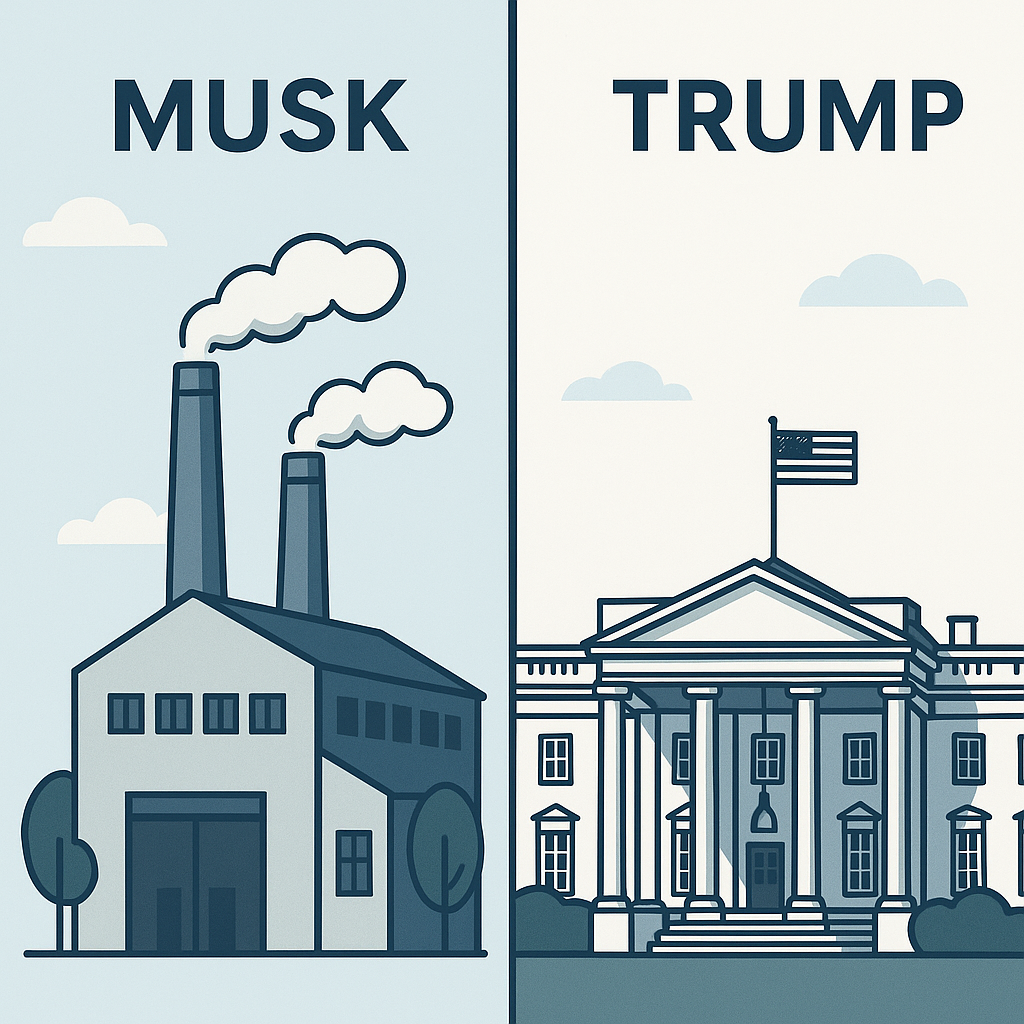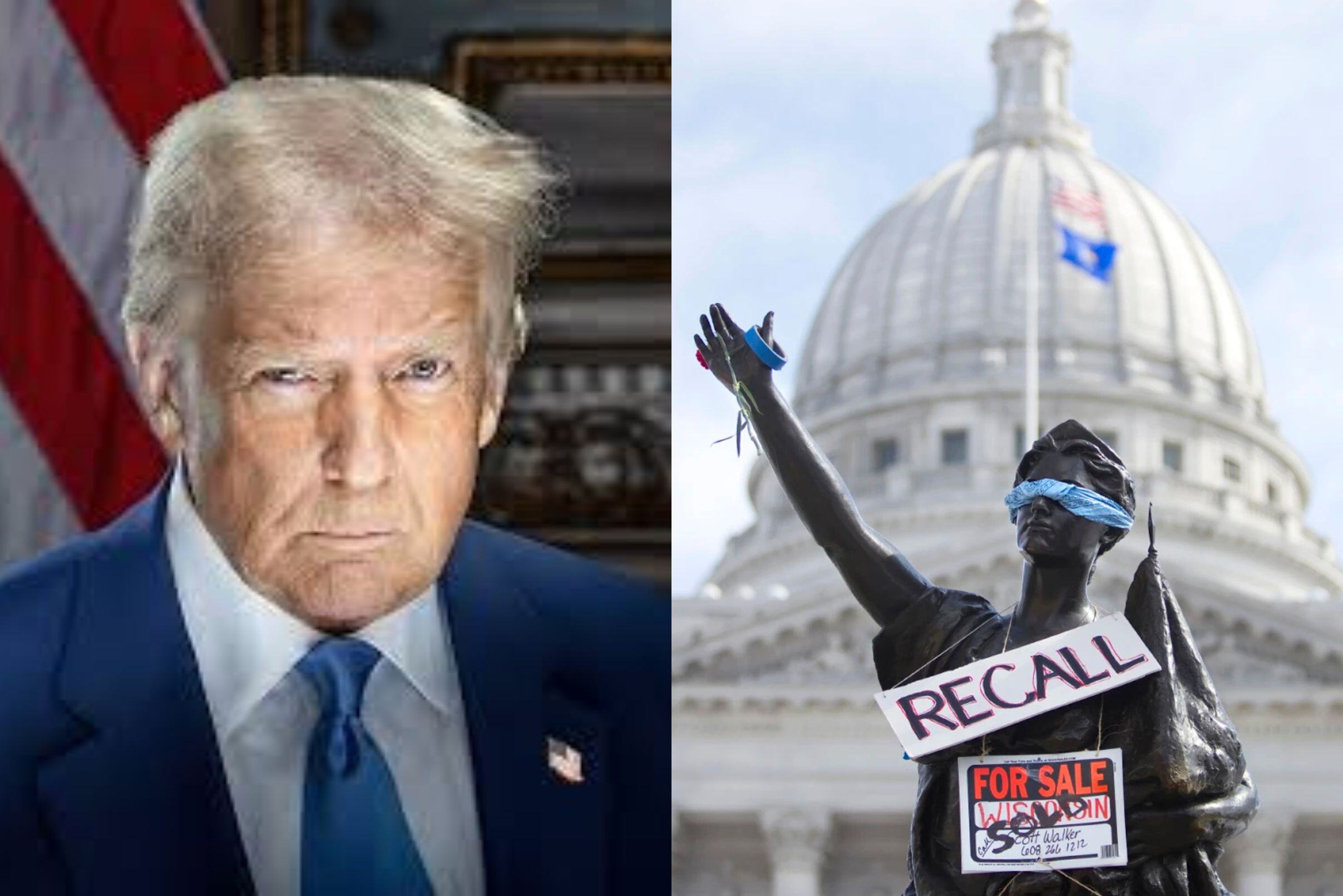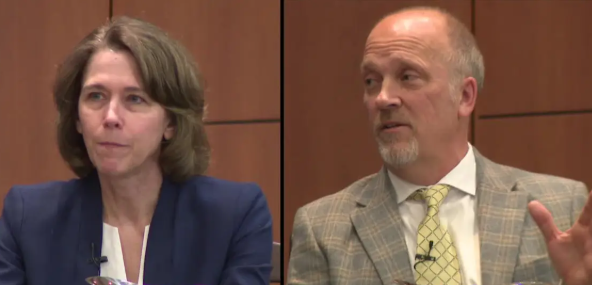Trump’s team saw the Wisconsin race as unwinnable, and Musk ignored their warnings.
What to Know:
- Trump’s political team reportedly gave up early on the Wisconsin Supreme Court race, fearing it was unwinnable.
- Elon Musk defied the White House and poured resources into Brad Schimel’s campaign, commissioning his own polls.
- Trump turned on Schimel after a town hall, telling aides he was “done” with him.
- The race spiraled into a referendum on Trump and Musk—exactly what top White House aides warned against.
- Musk spent nearly $25 million in the Wisconsin Supreme Court race which backfired and became a referendum on his influence.
Trump and Musk tour Teslas together at the White House. Source: whitehouse.gov
While Republicans scored narrow wins in two Florida congressional districts the same night, the Wisconsin race ended in an overwhelming loss that has GOP operatives asking how they lost so badly, so early.
Trump’s Team Wrote It Off—Musk Didn’t Get the Memo
According to WSJ reporters Josh Dawsey, Annie Linskey, and Dana Mattioli, Trump’s political operation saw warning signs from the outset. His aides were “dismayed” by Musk’s heavy involvement and privately believed that Brad Schimel, the Republican candidate and former attorney general, had little chance of winning. As they predicted, the election inevitably focused on both Musk and Trump.
Brad Schimel, GOP-backed candidate for the Wisconsin Supreme Court. Source: Wisconsin Examiner
Musk, however, had other plans. Despite pushback from the White House, he doubled down, commissioning his own internal polling that claimed Schimel was competitive. He bankrolled the race, reportedly as part of the nearly $300 million he spent on GOP causes during Trump’s return to the presidency. The Tesla and SpaceX CEO appeared confident. However, having confidence doesn't help a candidate get more votes or improve their performance on stage.
The Moment That Blew It All Up
The turning point came during a town hall featuring Trump and Schimel. Trump, known for his gut-level political instincts, walked away frustrated. According to WSJ sources familiar with the event, the former president told advisers he was “done” with Schimel after watching him stumble through an abortion-related question. No official quote has been published, but sources say Schimel’s response lacked clarity and conviction, prompting Trump to pull back entirely from the race.
X post from Molly Beck cites WSJ: Trump dropped Schimel.
This moment highlights a larger GOP problem: abortion messaging. As red states pass increasingly restrictive bans, Republicans nationally have struggled to strike a balance that energizes their base without alienating suburban and independent voters. The Wisconsin debacle raises a lingering question: has Trump, perhaps with the help of longtime adviser Kellyanne Conway, started to learn what the party shouldn’t say about abortion?
Musk’s Political Overreach
By spring 2025, Musk’s four-month stint running the Department of Government Efficiency (DOGE) had become a political soap opera. His tenure included aggressive spending cuts, surprise firings, and clashes with Trump’s cabinet secretaries.
At one point, he referred to trade adviser Peter Navarro as “dumber than a sack of bricks.” Musk even called Senator Todd Young a “deep state puppet” in a since-deleted post. This seemed to have prompted disruption Trump’s own nomination strategy for national intelligence director.
Elon Musk at the U.S. Air Force Academy, April 2022. Public domain.
Despite early polling optimism from Musk’s camp, Schimel’s campaign never gained traction. Certified April 2025 election results show Judge Susan Crawford won the statewide race against Schimel by a margin exceeding 238,000 votes, which translates to more than an 11-point victory. This outcome marks one of the most substantial defeats for a Republican in a Wisconsin Supreme Court election in over ten years.
Democrats and liberal groups quickly seized on Musk’s high-profile involvement, turning the race into a referendum on his influence. They flooded the airwaves with ads featuring burning Teslas, staged protests at Tesla dealerships across the state, and framed Musk as a billionaire outsider trying to buy the court. Anti-Musk messaging was a centerpiece of the opposition strategy. Musk reportedly spent close to 9 million dollars supporting Schimel, but internal polling and post-election reviews suggest his presence may have energized liberal turnout and alienated key suburban swing voters.
Judge Susan Crawford enters Wisconsin Supreme Court race, June 2024. Photo: Maddy Pritzl via AP
The election outcome clearly showed voter rejection, with liberal strongholds like Dane County delivering overwhelming margins for Crawford, approaching 80% of the vote. Conversely, Schimel lagged behind 2024 figures by 6 to 8 points in traditionally conservative suburban counties like Waukesha.
Despite warnings from the White House that Elon Musk's support could be seen as interference from the elite, triggering Trump-related weariness, these concerns were ignored. Musk, relying on his own polls that indicated a possible win, pushed forward. By the time Trump distanced himself, the damage was irreversible. The defeat signified a failure to control the narrative, highlighting that financial backing and influential donors cannot compensate for a clear message and a strong candidate.
Wrap Up
The Wisconsin Supreme Court election's failure for conservatives wasn't solely about Brad Schimel. It escalated into a battleground between Donald Trump and Elon Musk, two influential figures on the right, setting the stage for its downfall. A potentially victorious election spiraled into a critical error, fueled by internal conflict, flawed electoral assessments, and a nominee ill-equipped for public attention, culminating in defeat.
Trump, after a disastrous joint town hall, cut ties and moved on. A resounding double-digit loss, exceeding 238,000 votes, signaled more than a mere defeat; it exposed a critical failure in the strategies conservatives have been employing. Their established formula, it's become glaringly obvious, is fundamentally flawed.
If Republicans head into 2026 thinking money and name recognition can substitute for message discipline and candidate quality, they should expect more losses like this. Wisconsin didn’t reject conservatism. It rejected confusion, mismanagement, and outside interference masquerading as leadership.





